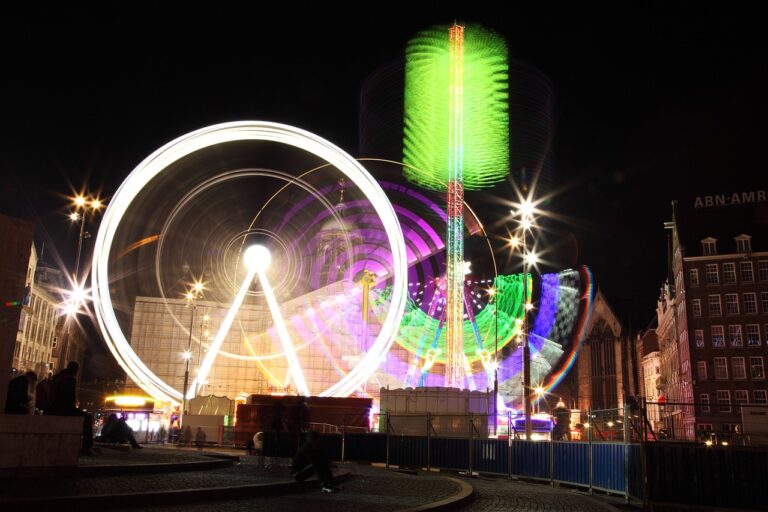The Role of Special Effects Supervisors in Creating Movie Magic
Movies have been a source of entertainment and wonder for audiences around the world for decades. From thrilling action sequences to breathtaking visual effects, films have the power to transport viewers to different worlds and evoke a wide range of emotions. Behind the scenes, a team of talented individuals works tirelessly to bring these cinematic experiences to life, including special effects supervisors who play a crucial role in creating movie magic.
What Is a Special Effects Supervisor?
A special effects supervisor is a key member of the production team responsible for overseeing the creation and implementation of special effects in a film. Special effects can include a wide range of techniques, from practical effects like explosions and stunts to digital effects like CGI and green screen technology. The special effects supervisor works closely with the director and other departments to ensure that the visual effects align with the creative vision of the film.
The Responsibilities of a Special Effects Supervisor
Special effects supervisors have a wide range of responsibilities that are essential to the success of a film. Some of the key duties of a special effects supervisor include:
1. Planning and Budgeting
Special effects supervisors are responsible for developing a plan for the implementation of special effects in a film, including determining the budget and timeline for the effects work. They work closely with the production team to ensure that the effects are achievable within the constraints of the budget and schedule.
2. Creating Practical Effects
One of the primary responsibilities of special effects supervisors is to create practical effects that are used in the film. This can include building and rigging explosives, creating prosthetic makeup, and designing mechanical props. Special effects supervisors must have a strong understanding of engineering and physics to ensure that practical effects are safe and realistic.
3. Overseeing Digital Effects
In addition to practical effects, special effects supervisors also oversee the creation of digital effects in a film. This can involve working with computer graphics artists to create CGI elements or coordinating with visual effects studios to integrate digital effects seamlessly into the live-action footage.
4. Collaborating with Other Departments
Special effects supervisors work closely with other departments, including art direction, cinematography, and post-production, to ensure that the special effects align with the overall creative vision of the film. They must collaborate effectively with these departments to ensure that the effects work enhances the storytelling and visual style of the film.
5. Ensuring Safety on Set
Special effects supervisors are responsible for ensuring the safety of cast and crew on set during the implementation of special effects. They must adhere to strict safety protocols and regulations to prevent accidents and injuries during filming.
The Evolution of Special Effects in Film
The role of special effects supervisors has evolved significantly over the years, thanks to advances in technology and filmmaking techniques. In the early days of cinema, special effects were primarily created using practical techniques like miniatures, matte paintings, and in-camera tricks.
As technology advanced, filmmakers began to incorporate more sophisticated visual effects into their films, including the use of computer-generated imagery (CGI) and motion capture technology. Special effects supervisors have had to adapt to these changes, staying up-to-date on the latest trends and techniques in the industry.
The Impact of Special Effects on the Audience
Special effects play a crucial role in enhancing the storytelling and visual appeal of a film, allowing filmmakers to create stunning visuals and immersive worlds that captivate audiences. From epic battle sequences to fantastical creatures, special effects can transport viewers to fantastical realms and bring their wildest imaginations to life.
When done well, special effects can evoke strong emotional reactions from audiences, whether it’s awe at the spectacle of a massive explosion or fear at the sight of a terrifying monster. Special effects have the power to enhance the overall viewing experience and make a film truly memorable.
The Future of Special Effects in Film
As technology continues to advance at a rapid pace, the possibilities for special effects in film are endless. From photorealistic CGI characters to immersive virtual reality experiences, filmmakers have a wealth of tools at their disposal to create stunning visuals and push the boundaries of storytelling.
Special effects supervisors will continue to play a vital role in bringing these visions to life, leveraging their expertise and creativity to produce groundbreaking effects that dazzle audiences. As audiences demand more immersive and visually spectacular experiences from films, special effects supervisors will be at the forefront of innovation in the industry.
FAQs
Q: What skills are required to become a special effects supervisor?
A: Special effects supervisors must have a strong background in engineering, physics, and visual effects techniques. They must be highly creative, detail-oriented, and skilled at problem-solving to create realistic and awe-inspiring effects for films.
Q: How do special effects supervisors work with directors?
A: Special effects supervisors collaborate closely with directors to bring their creative vision to life. They work with the director to understand the storytelling goals of the film and determine the best approach for implementing special effects that enhance the narrative.
Q: What is the difference between practical effects and digital effects?
A: Practical effects are physical effects that are created on set, such as explosions, stunts, and prosthetic makeup. Digital effects, on the other hand, are created using computer-generated imagery (CGI) and other digital tools to enhance or create visual elements in a film.
Q: How does the role of special effects supervisors differ from that of visual effects supervisors?
A: Special effects supervisors are primarily responsible for practical effects, such as explosions and physical props, while visual effects supervisors focus on creating digital effects, such as CGI elements and compositing. Both roles work together to ensure that all visual effects in a film are seamlessly integrated and enhance the storytelling.
With their expertise and creativity, special effects supervisors are instrumental in creating the awe-inspiring visual effects that bring movie magic to the big screen. Their contributions to the filmmaking process are invaluable, as they help filmmakers realize their creative visions and transport audiences to new and exciting worlds.







